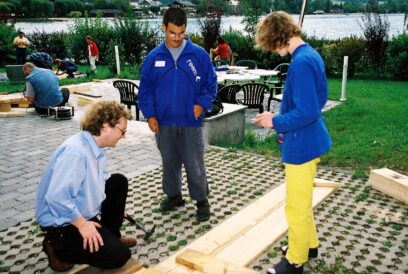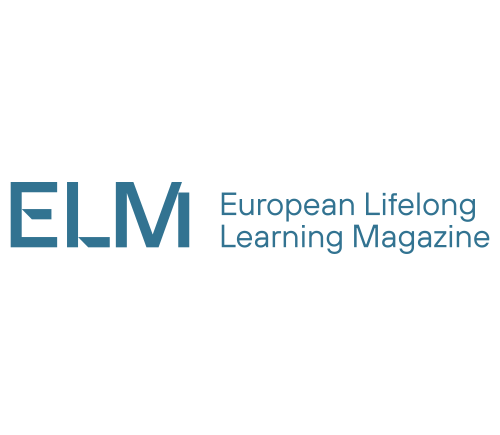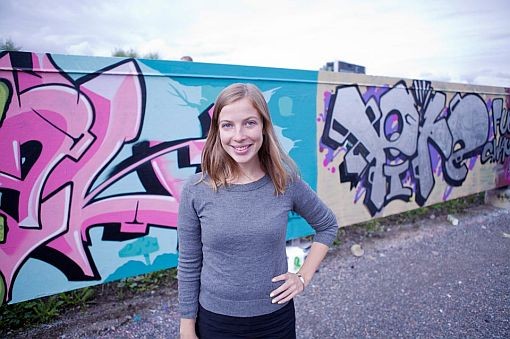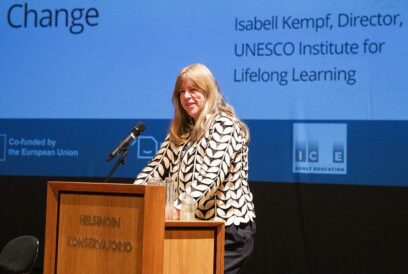

According to the young Finnish politician Li Andersson, promoting people’s participation in society is a task for schools. For her it is important to use understandable language when speaking about active citizenship.

Photo: DialogWeb
According to the young left-wing politician Li Andersson, promoting people’s participation in society can be achieved in a wide variety of ways, but for her it is important not to make it difficult but to use ordinary, everyday language that everyone can understand.
“At the end of the day politics is about processes that concern all of us, most things in society are political and it is important for people to see themselves as political players”.
Li Andersson, 25 years old, an attraction for voters in recent local government elections, is President of the Left Youth of Finland. She is in great demand as a public speaker in both the Swedish and Finnish communities in Finland. She sees herself as a typical example of a student who did not live up to the expectations the government puts on the university students.
“I study law, but have worked during the last two years while being a student at the university, so I did not manage to get the study points required. I took a free year after the secondary school and I am glad I did it. It is important and helps to get strength to go on with further studies later on”.
Becoming a politician did not feature directly in Andersson’s plans, but since she had already become involved in social issues, wanting to have an influence in parliamentary matters was a natural progression.
“Like a lot of people I have chosen to concentrate on things that interest me. To succeed in politics you need to be really driven and capable of hard work rather than having a specific sort of education. For example, within my own party there are people from extremely different educational backgrounds”.
Right-wing extremism under the spotlight
Andersson does not have any single formula for promoting the desire to make an impact and be active in society, but she points out that it can take many different forms depending on what the individual person wants to do. It may involve anything from taking part in demonstrations to participating in a referendum. The desire to have an influence can also be expressed in a negative way, something that has happened in right-wing extremism, a phenomenon that Li Andersson has chosen to look at more closely. Together with Dan Koivulaakso and Mikael Brunila she published a book recently, “Äärioikeisto Suomessa” [The Far-Right in Finland], which goes into depth of right wing extremism in Finland (which actually led to an incident where people from the movement forced their way into the library where the book was being discussed and inflicted injuries on an official with a knife).
“We wanted to write an all-encompassing book about the ultra right radical movements in Finland and the rest of Europe and about the ideological background that can be traced back to France in the 60’s and 70’s. After the events in Norway in the summer of 2011 we saw even more clearly how important it is to analyse these issues.”
The authors, for example, translated articles from Sweden because they perceived the Swede’s having got much further in their discussions there. In Finland the idea of ultra right radicalism is fairly set in the stereotypical image of neo-Nazism, whereas in Sweden for example the debate has focussed more intensively on Islamophobia.
Although there is generally some form of political or economic crisis underlying the movements, Li Andersson does not want automatically to link the emergence of extreme groups with economic depression until more extensive research has been conducted on the subject.
“Islamophobia grew up during the economic upturn at the beginning of the 2000’s more as a political statement after the WTC attacks”.
Education too system-centred
In Andersson’s opinion, linking low educational achievement with right-wing extremism does not add up either, as she has come across extremely well-educated fascists in Finland.
“There are people and groups who are extremely frustrated and angry, who channel their dissatisfaction into these forms of political activity”.
Andersson points out that education still has a huge influence when it comes to forming a person’s attitudes and the Finnish education system leaves a lot to be desired.
“In this country we teach how the systems work in society. For example we concentrate on the powers the EU has, but not the significance of the EU in political terms, what it means to take part in the decision-making process. We do not properly understand what our parties stand for, what the political substance really is, and it is easy to think that politics are bound up with the system, not something that concerns an ordinary person.”
Andersson argues that the same trend can be seen in schools, where it can easily happen that there are a few active people who take part in school politics while the rest of the students do not feel involved.
“At a very early stage you get the idea that there are certain people who take care of things, while individual students do not have any share in the decision-making”.
Social and civic education for everyone
Li Andersson is concerned that during the various stages of education the content of education is directed into different and specific directions.
“At the secondary school level there is a feeling that the role of education is to raise active citizens while vocational training only has to satisfy the requirements of the labour market, but even in later education social studies ought to be important and also, for example, drama courses. What is taught in schools about society is decisive and also how we talk about problems and phenomena and who gets to express their views. In Finland when we attempt to tackle racism we concentrate on the extremely problematic concept of tolerance. By talking about tolerance we send out signals about differences that should be tolerated and this already contains an inherent value judgement.”
According to Andersson we should avoid questions of value and instead present the facts and explain what immigration is, how the European way of accepting asylum seekers works and what the facts and figures are.
“We should talk about actual problems on the labour market and how social welfare works. The discussion simply should not be about for or against immigration and multi-culturalism, like it should not for or against rain, or being Finnish. It is something that is a fact and normal, something we have to live with”.
Published 17.4.2013 in Swedish in DialogWeb
Text: Clara Henriksdotter
This article was produced in collaboration with InfoNet adult education network.
Finland – legal basis for citizenship education
Adult education, through its links with liberal adult education, is one of the foundation stones for active citizenship and civil society in Finland. The law for liberal adult education explicitly names education for active citizenship as one of the tasks of adult education.
The liberal adult education organisations and their study centres are run by associations. Most adult education centres and sports institutions have close links with civil society. Active citizenship is rarely a direct teaching subject within Finnish adult education but its presence should ideally be felt in the content of teaching within the liberal adult education activities.
Nearly a million Finns regularly take part in voluntary work. If those who do voluntary work less regularly are taken into account the figure goes up by another million at least. The number of people studying on a non-formal basis is also close to a million: this is roughly one fifth of the whole population of 5,4 million.
Text: Aaro Harju, Markus Palmén





